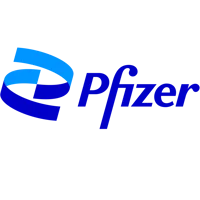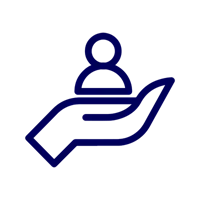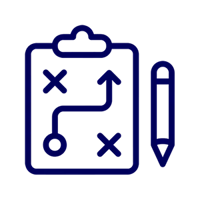

Birgit Meldal
Senior Manager, Global Data Standards and Ontologies at Pfizer UK
You are awesome. Belief in your own strengths and you will go as far as you can dream of.
About Birgit...
Who am I?
"The personality types match well for me. I am a project and people manager at work and a volunteer football coach in my spare time which means that I constantly work with people with a variety of personality types. I support my team members by listening deeply and adjusting and assigning tasks based on their strengths while I give them opportunities to development in other areas through coaching. I create a safe environment where failure is regarded as an essential part of learning. I give my team members ownership over their tasks which builds trust and results in high performing teams. I connect people to create solutions: I coordinate projects across many different teams in the company which means I see similar problems in different contexts. Sometimes, I can adapt solutions that worked for one business area to solve a similar problem in a seemingly unrelated area, other times I come up with novel solutions. I can identify the right colleagues with the right skills to deliver a successful project. I influence stakeholders across the whole company and I can delegate work up and down different seniority levels. My team delivers on time and on budget because I am flexible and adaptable to fast changing priorities and adjust my and my team’s priorities accordingly. I pay great attention to detail which builds trust with our clients and customers. I am good at identifying and assessing risks early on in a project and sometimes I need to challenge the status quo and convince stakeholders that a differ approach is required to mitigate such risks. "
What do I do?
"My main role is to create a service to teams across the whole company that enables them to make the best use of our data. I’m still new in this role and therefore haven’t got any major outcomes. However, I have already improved how one team is using an existing international standard better than they originally proposed and helped them adapt this standard through the bespoke software that I manage to make it easily accessible for their use case. I’m currently working on creating a strategic data management program for the whole of our company. The aim is that everyone across the company manages their data, especially the scientific data, in such a way that anybody else can reuse it. Making all our data easily reusable will ultimately lead to faster development of new medicines. There are many aspects to consider from where the data come from to who can legally access it (e.g. some data must never leave their country of origin, only certain people can access patient information,…). I really enjoy this multi-facet work where I need to work with many people every day and I have a mandate to improve our processes that ultimately result in better, more efficient and more effective global healthcare. Every day, I learn something new about our company or the way medicines are developed from early research projects to helping patients."
How did I get here?
"I started my career with an undergraduate degree and a PhD in Marine Biology, from the University of Bangor and Southampton, respectively. For my PhD I specialised in sequencing DNA from marine nematode worms and analysing the sequences to understand how they are related to each other. After my training I became a Postdoctoral researcher at the University of Cambridge where I worked in several biomedical molecular biology labs and investigated the effects of genes on cancer development and how human and viral genetics influence each other and lead to different pathologies in patient with seemingly the same virus infection. During these early stages of my career I developed a love for data and I decided to leave the lab and train as a biocurator at the European Bioinformatics Institute (EBI). Using my scientific knowledge and a knack for identifying patters I worked in a team that manages one of many archives for biological data. I read scientific articles, identified the different elements of the experiments (e.g. what molecules are involved, what laboratory techniques were used) and entered this data into a database. This database follows strict rules and data standards and each element of that data has to be entered in a specific format. By turning this data from unstructured text, tables, figures and pictures into structured data in a database we make it easy for human and computers to access and compare it. Researchers from all over the world can access this data and use it as a reference for analyses and as starting points for new experiments and new discoveries about our natural world. Part of this work included working closely with the software developers who design and maintain the database, website and bespoke software. As research evolves, scientists develop new techniques and create new types of data. To capture this new data we work with our developers and often also the scientists to create new standards and update our database. Because this data is fully annotated (or “labelled”) is can also be used as training data for artificial intelligence and machine learning algorithms. When my time at the EBI came to an end I joined a small company in Cambridge and helped them and their customers to standardise their data based on these international standards, some of with I co-developed at the EBI. After 2 years with that company I moved into my current role, where I’m taking data standardisation to a new level and I manage data across a large, multinational pharma company."
The life I live
"Most of my free time is taken up by sport. I’ve always been active; I was a swimmer at school, played waterpolo at university and into my 30s and been doing Pilates, Yoga, circuit training and HIIT classes since. I still try to work out most days as it keeps me fit and healthy. I’ve recently started running (not very far yet). When I’m not at work or doing my own sport I spend time with my family or volunteer for our local football club and county football association where I hold several roles from team manager to safeguarding champion. I also like reading, going for walks and exploring new places. "
My typical day
"I work from home and in a global team and most of the colleagues I work with closely are based in the USA. My mornings are often meeting-free. This allows me to set my agenda for the day, clear my inboxes and reply to messages. I block focus time in the mornings to work on project documents and data management tasks. I may work on my own project proposals, review comments from colleagues and update the proposals accordingly, turn proposals into Powerpoint presentations, practice presentations or review my colleagues’ documents for projects that I am part of but don’t lead. I’m in charge of some bespoke data management software. I may need to review data from colleagues and send them feedback or I might create new datasets or rules for new data types or projects. My afternoons can be very busy with Teams meetings. In these meetings, we plan and review project proposals and related documents with the project team members and once I present such proposals to my boss or more senior leaders. These meetings can be entirely internal within the company or part of international pharma industry consortia. The external projects focus on creating universal data management rules and standard processes that everyone in our industry should apply. Internationally standards result in better data use and reuse and ultimately speeds up the development of new medicines. "
My qualifications
"Abitur (German equ to A-Levels) BSc Marine Biology PhD in Molecular Phylogenetics Postdoctoral Research in Oncology / Molecular Virology Biocurator Scientific Data Manager "



